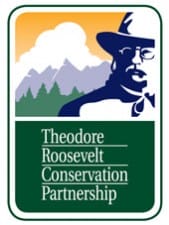A study mandated by Wyoming state legislators finds that the realities of public land management make transfer an unworkable idea.


CHEYENNE, Wyo. –-(Ammoland.com)- A new state-mandated report on the feasibility of transferring management authority for 25 million publically owned acres to the state of Wyoming concludes that the process would be a financial, administrative, and legislative burden.Ultimately, the report prepared for the Office of State Lands and Investments (OSLI) says that the state would inherit costly land management issues, like wildfire and litigation, if it were to manage the lands that currently belong to all Americans.
The report also cautions that any transfer of land ownership would mean local governments would lose important federal funding sources, such as Payments in Lieu of Taxes.
“We’re not surprised by the findings, although sportsmen in the West should be heartened by the independent confirmation of what experts have been saying for years—the transfer or sale of America’s public lands to individual states would be a financial disaster for local governments and would threaten our access to hunting and fishing,” says Nick Dobric, Wyoming field representative for the Theodore Roosevelt Conservation Partnership. The organization has been calling for lawmakers to oppose state takeover of public lands since January 2015 and has collected more than 34,000 signatures—2,200 of which are from Wyoming hunters and anglers—on a petition.
The report echoes the concerns that sportsmen have raised about the fundamental differences in the way state and national lands are managed. It reads:
State trust lands are in no way required to be managed for multiple use. In fact, the fiduciary obligation to generate sustainable revenue may be mutually exclusive of the ability to manage for multiple use, and this dichotomy significantly affects program revenues and associated costs. As an example, the OSLI issues grazing leases based on market value and has the ability to exclude other uses on the property (i.e., hunting or camping) because they do not generate revenue and could have a negative impact to the livestock producer.
Cheyenne sportsman Earl DeGroot, one of the local hunters responsible for the popular Wyoming Sportsmen for Federal Lands page on Facebook, hopes this will be the last talk of public land transfer from state lawmakers.
“I hope the legislature will consider the findings of this report, and the overwhelming opposition that Wyoming sportsmen have expressed, and finally put an end to this effort,” says DeGroot. “I feel very fortunate to have hunted elk, deer, antelope, and even bighorn sheep and black bears on federal public lands in Wyoming, and sportsmen are tired of seeing our access jeopardized. The focus of our legislators should be on the real land management solutions and partnerships that will benefit our state.”
A rally in support of public lands, organized by the TRCP and many other hunting, fishing, and outdoor organizations, will take place in Casper on November 5, 2016. Featured speakers will include Chris Madson, conservation writer and former editor of Wyoming Wildlife Magazine, and Land Tawney, president and CEO of Backcountry Hunters and Anglers.
For more information on the would-be impacts of land transfer in Wyoming, and a record of meaningful opposition from elected leaders and counties in the Cowboy State, visit sportsmensaccess.org.
